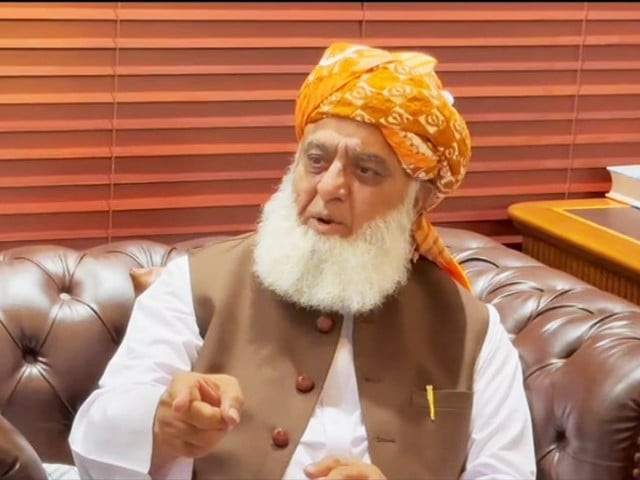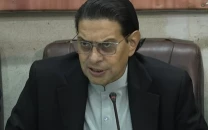Tribal jirga rejects Operation Azm-e-Istehkam as ‘destabilising’, says Fazl
JUI-F chief questions why interference from Iran is resolved within a week while Afghanistan is treated differently

Maulana Fazlur Rehman, the chief of his own faction of Jamiat Ulema-e-Islam (JUI-F), has rejected the government's decision to launch an operation against terrorists and extremists, stating that the tribal jirga also declared the "Azm-e-Istehkam" operation as destabilising and expressed no confidence in it.
In a media briefing following a tribal jirga in Peshawar on Thursday, Fazl explained that the jirga was convened before the Azm-e-Istehkam operation decision made by the government and that it was not on the agenda. However, the jirga deemed the operation destabilising and expressed its lack of confidence in it.
He pointed out that armed groups have spread to several areas, controlling traffic and setting up checkpoints, with police in the southern districts avoiding leaving their stations at night.
Fazl highlighted the sacrifices made by the people of Swat, who were displaced from their homes. "Youth have become unemployed, and women are begging. Those whose homes were completely destroyed were given token compensation of 400,000 rupees, but they have not received the money yet," he said.
Also read: Govt has ‘lost peoples’ trust’, claims Fazl
He condemned the violations of tribal sanctity and economic destruction, adding that fencing had forced 20,000 to 30,000 people to cross the border and return more powerful.
"State affairs are not settled in haste," he said. "When asked why this is happening, they say people came from Afghanistan, where American interests dictated the governments, except for the Islamic Emirate."
The JUI-F chief questioned why interference from Iran is resolved within a week while a different approach is taken with Afghanistan. He lamented that Afghanistan has been drenched in blood since the 1980s and wondered why stability is not being allowed there, suggesting an external agenda at play.
He stated that a decision was made to give armed groups a peaceful route, asserting, "We want to make Pakistan an Islamic Emirate under the Constitution and law."
Fazl stressed the sensitivity of the situation in his country. "I did not disagree with Sufi Muhammad's movement in Malakand, but the method was wrong. Azm-e-Istehkam is not my concern; I now want to sbring the country out of quagmire, not just the government," he concluded.



















COMMENTS
Comments are moderated and generally will be posted if they are on-topic and not abusive.
For more information, please see our Comments FAQ